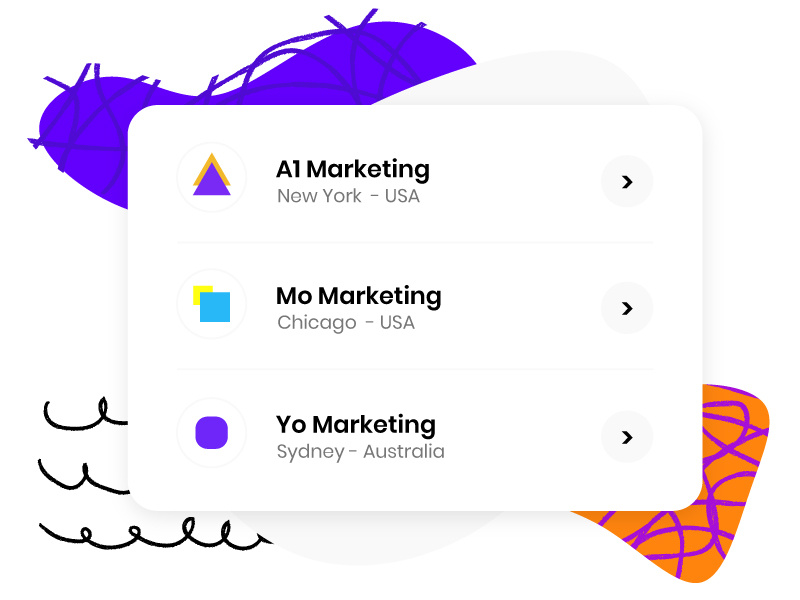
In today’s fast-paced financial landscape, securing a loan can be a lifeline for many individuals and families. Whether it’s for emergency expenses, debt consolidation, or funding a small business, understanding your eligibility for loans like those offered by Big Picture Loans is crucial. With rising inflation, economic uncertainties, and shifting lending policies, knowing where you stand before applying can save time and improve your chances of approval.
Why Loan Eligibility Matters More Than Ever
The global economy has faced unprecedented challenges in recent years—supply chain disruptions, fluctuating interest rates, and job market instability have made financial planning more complex. For many, traditional banking options are no longer accessible due to stricter credit requirements. This is where alternative lenders like Big Picture Loans come into play, offering solutions tailored to those who may not qualify for conventional loans.
The Impact of Credit Scores on Loan Approval
Your credit score remains one of the most critical factors in determining loan eligibility. Lenders use it to assess risk—the higher your score, the more likely you are to secure favorable terms. However, alternative lenders often consider additional factors, such as income stability and employment history, making them a viable option for those with less-than-perfect credit.
Steps to Check Your Credit Score Before Applying
- Request a free credit report from major bureaus like Experian, Equifax, or TransUnion.
- Review for errors—dispute inaccuracies that could lower your score.
- Understand your score range (e.g., 300-850 in the U.S.) and where you fall.
How Big Picture Loans Evaluates Applicants
Unlike traditional banks, Big Picture Loans specializes in serving borrowers who may have limited credit history or lower scores. Their eligibility criteria often include:
1. Proof of Steady Income
Lenders need assurance that you can repay the loan. Pay stubs, bank statements, or tax returns may be required.
2. Active Checking Account
A valid account is typically necessary for depositing funds and setting up repayments.
3. Residency and Age Requirements
You must be a U.S. resident (or meet state-specific criteria) and at least 18 years old.
4. Debt-to-Income Ratio (DTI)
This measures your monthly debt payments against your income. A lower DTI improves approval odds.
The Application Process: What to Expect
Applying for a loan with Big Picture Loans is designed to be straightforward. Here’s a breakdown:
Step 1: Online Pre-Qualification
Many lenders, including Big Picture Loans, offer a soft credit check option that doesn’t impact your credit score. This step provides an initial eligibility assessment.
Step 2: Submit Required Documents
Be prepared to upload:
- Government-issued ID
- Proof of income
- Bank account details
Step 3: Review Loan Offers
If approved, you’ll receive loan terms, including the amount, APR, and repayment schedule. Compare these carefully before accepting.
Common Reasons for Loan Denial (And How to Avoid Them)
Even with flexible criteria, applications can be rejected. Here’s why—and how to address it:
1. Insufficient Income
Lenders may deny applicants whose income doesn’t meet minimum thresholds. Consider applying with a co-signer or exploring smaller loan amounts.
2. High Existing Debt
Reducing your DTI by paying down balances can strengthen future applications.
3. Incomplete Application
Missing documents or errors can delay or disqualify you. Double-check all materials before submitting.
Alternatives If You Don’t Qualify
If Big Picture Loans isn’t an option, consider:
- Credit unions: Often more lenient than big banks.
- Peer-to-peer lending: Platforms like LendingClub connect borrowers with individual investors.
- Community programs: Local nonprofits may offer low-interest loans or grants.
The Future of Lending: Technology and Inclusion
Fintech innovations are reshaping borrowing. AI-driven underwriting, blockchain-based credit systems, and “buy now, pay later” services are expanding access to credit. For borrowers, this means more options—but also the need for greater financial literacy to navigate these tools responsibly.
Protecting Yourself from Predatory Lending
While alternative lenders fill a critical gap, some engage in high-interest or unfair practices. Always:
- Read the fine print.
- Compare APRs across multiple lenders.
- Avoid loans with hidden fees or balloon payments.
Final Tips for a Stronger Application
- Build credit over time: Use secured credit cards or small installment loans to demonstrate reliability.
- Reduce outstanding debt: Even small payments can improve your DTI.
- Seek advice: Nonprofit credit counselors can help optimize your financial profile.
Navigating loan eligibility in today’s economy requires awareness and preparation. By understanding how lenders like Big Picture Loans evaluate applicants, you can position yourself for success—and secure the funds you need when it matters most.
Copyright Statement:
Author: Avant Loans
Link: https://avantloans.github.io/blog/big-picture-loans-how-to-check-your-eligibility-1994.htm
Source: Avant Loans
The copyright of this article belongs to the author. Reproduction is not allowed without permission.
Recommended Blog
- Bad Credit Auto Loans: How to Negotiate Interest Rates
- Loan APR Meaning: The True Cost of Borrowing
- Kotak Prime Loans for Medical Emergencies: Quick Financial Aid
- How to Avoid Cash Loan Debt Traps
- The Timeline of a Loan Going into Default
- Jumbo Loan Closing Costs: What to Expect
- How to Use Instant Loans Responsibly
- Compare Loan Cosigner Release Policies: How to Remove a Cosigner
- How to Get a Loan for a Garage in Henderson, NV
- How Much Are Title Loans with Same-Day Funding?
Latest Blog
- Quick Cash Loans for Vacation Rentals
- Bad Credit? These Lenders Will Still Approve You
- $255 Payday Loans Online – What to Look for in a Lender
- 100 Percent Approval Loans for Gym Memberships
- Forbearance and Bankruptcy: What’s the Connection?
- Quick Approval Debt Consolidation Loans
- How to Get an Online Loan with a Co-Signer
- The Best Podcasts About Department of Education Student Loans
- MOHELA Student Loan Grace Period: What You Need to Know
- How to Report Fraudulent Online Payday Loan Lenders
